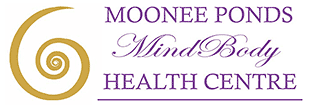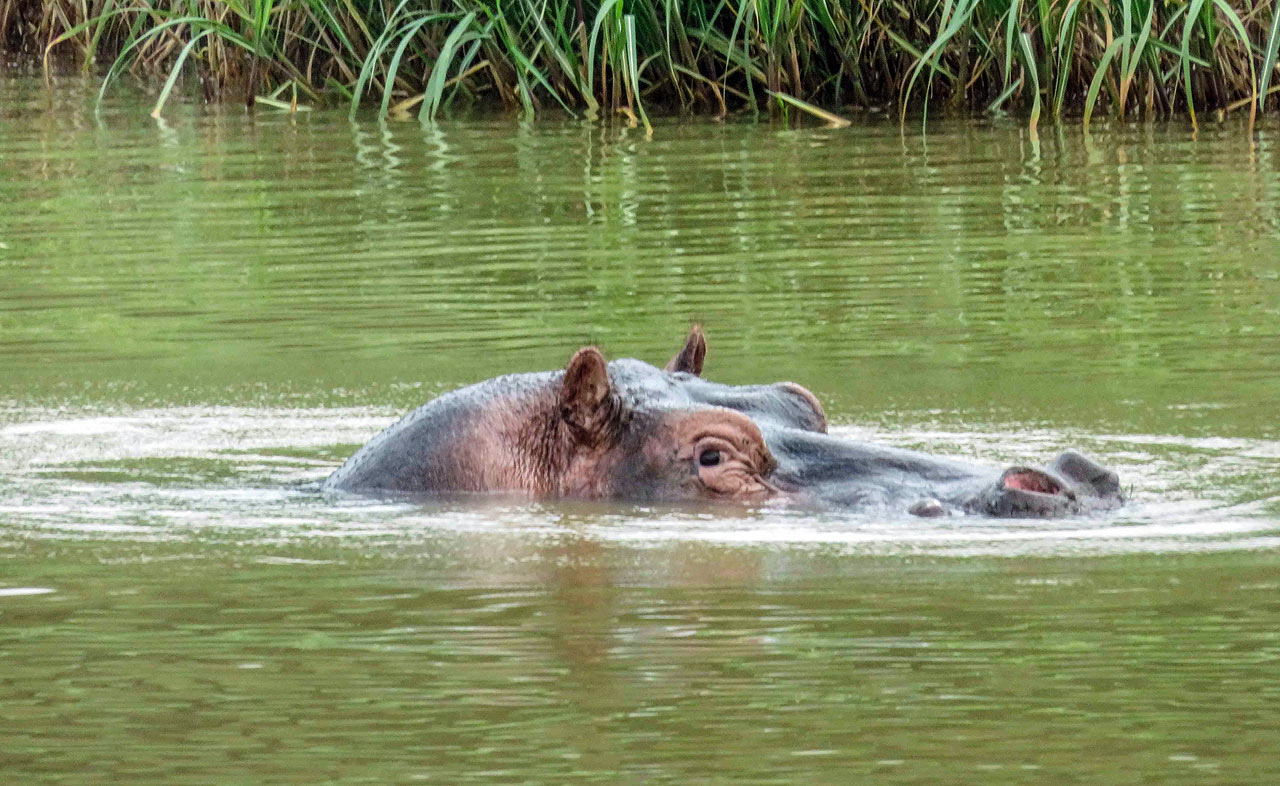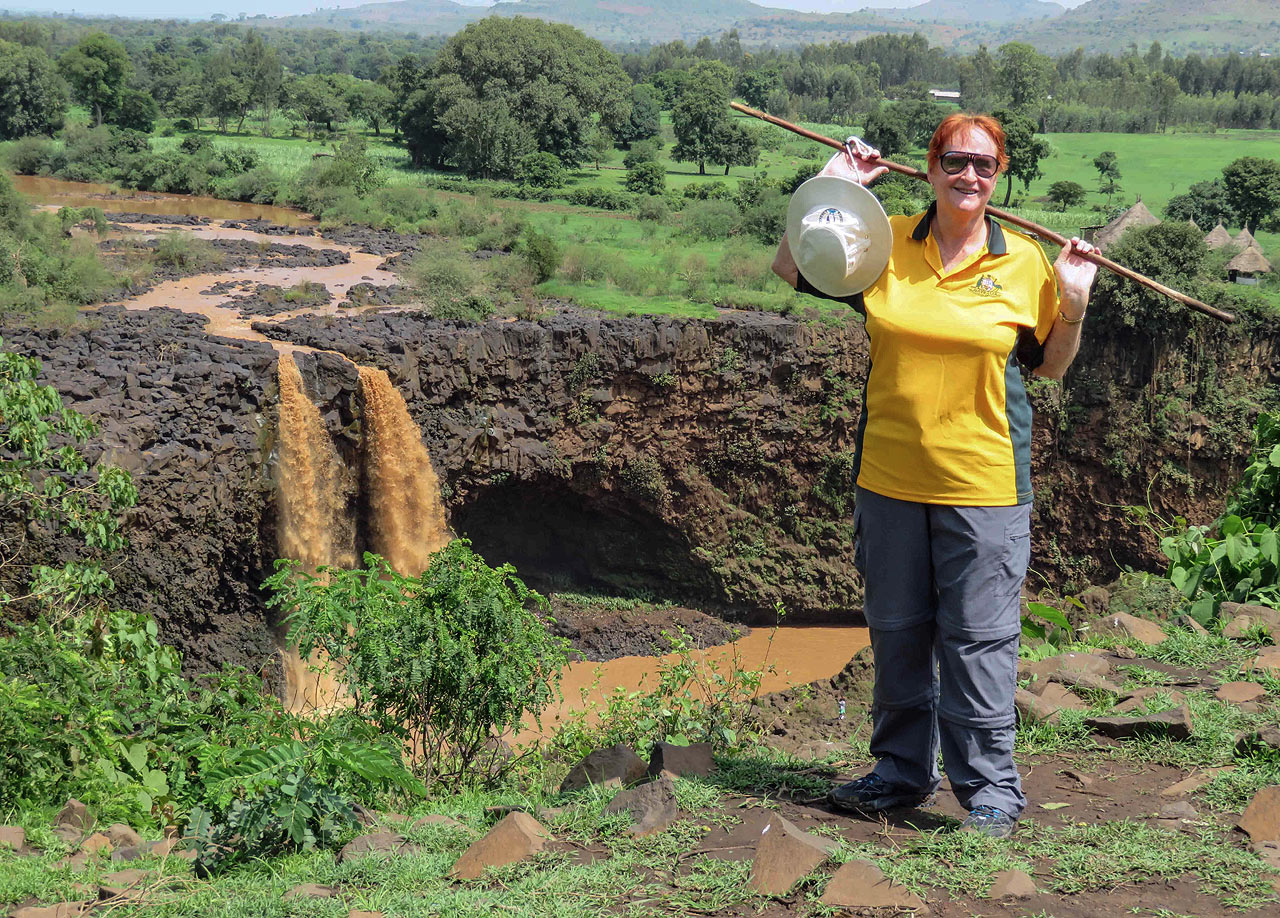From GP To Goat Herder | In Search Of Africa’s Blue Nile Falls
PHOTOS: After landing in Ethiopia, Dr Anne from Moonee Ponds MindBody Health Centre quickly transformed from GP to goat herder during a muddy trek to reach the Blue Nile Falls, passing some wild river animals along the way.
“When we arrived at our hotel on Lake Tana, I thought there was a crocodile swimming very close to the shore – and I was greatly relieved to realise that it was a large water monitor lizard.
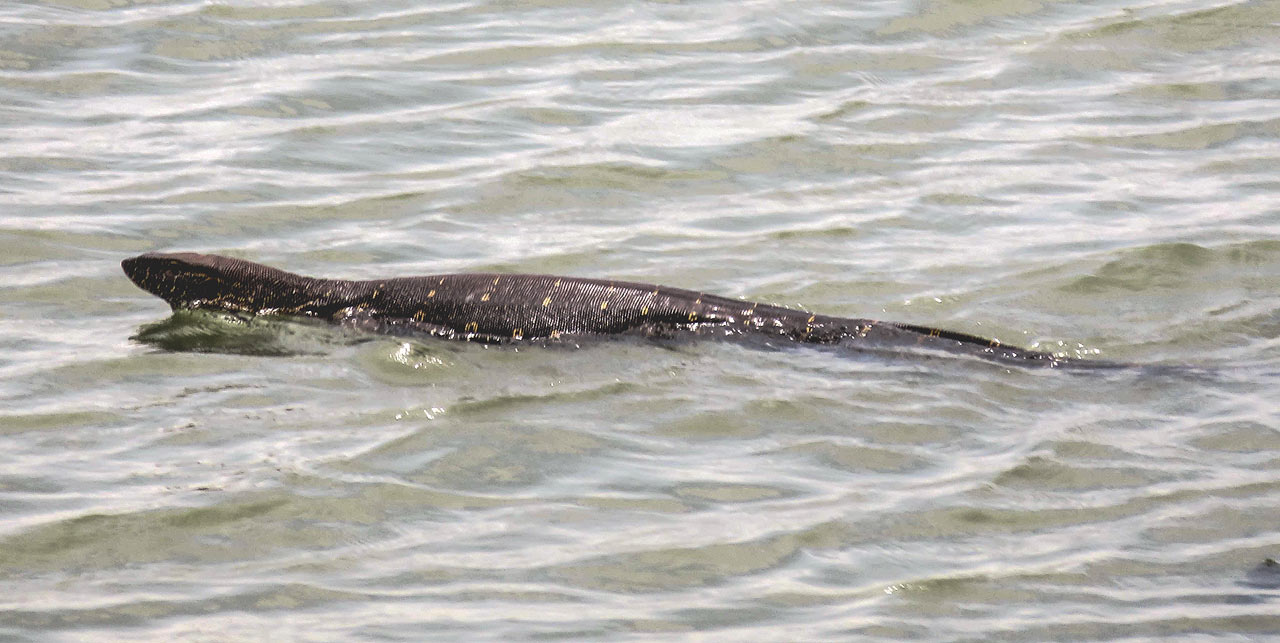
“Lake Tana is the largest lake in Ethiopia, stretching some 85km across. We went on a pleasant cruise to visit the Uka-Kidane Mehret monastery built in the 14th Century. It is situated right in the jungle and we saw some cute vervet monkeys on the way.
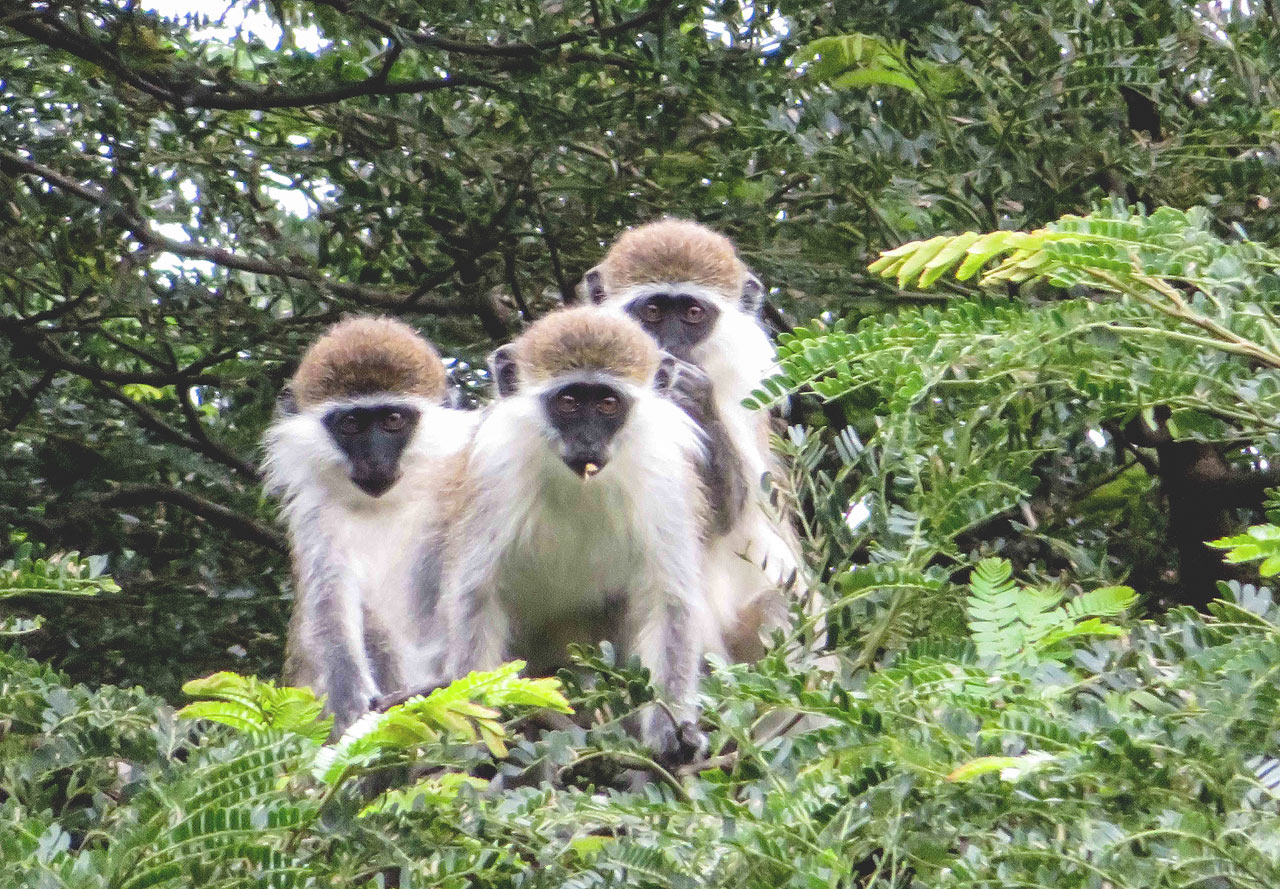
“The monastery is circular, and the inner wall is painted in vibrant pictures depicting Jesus and Mary. Their Coptic Christian religion also recognises St George killing the dragon.
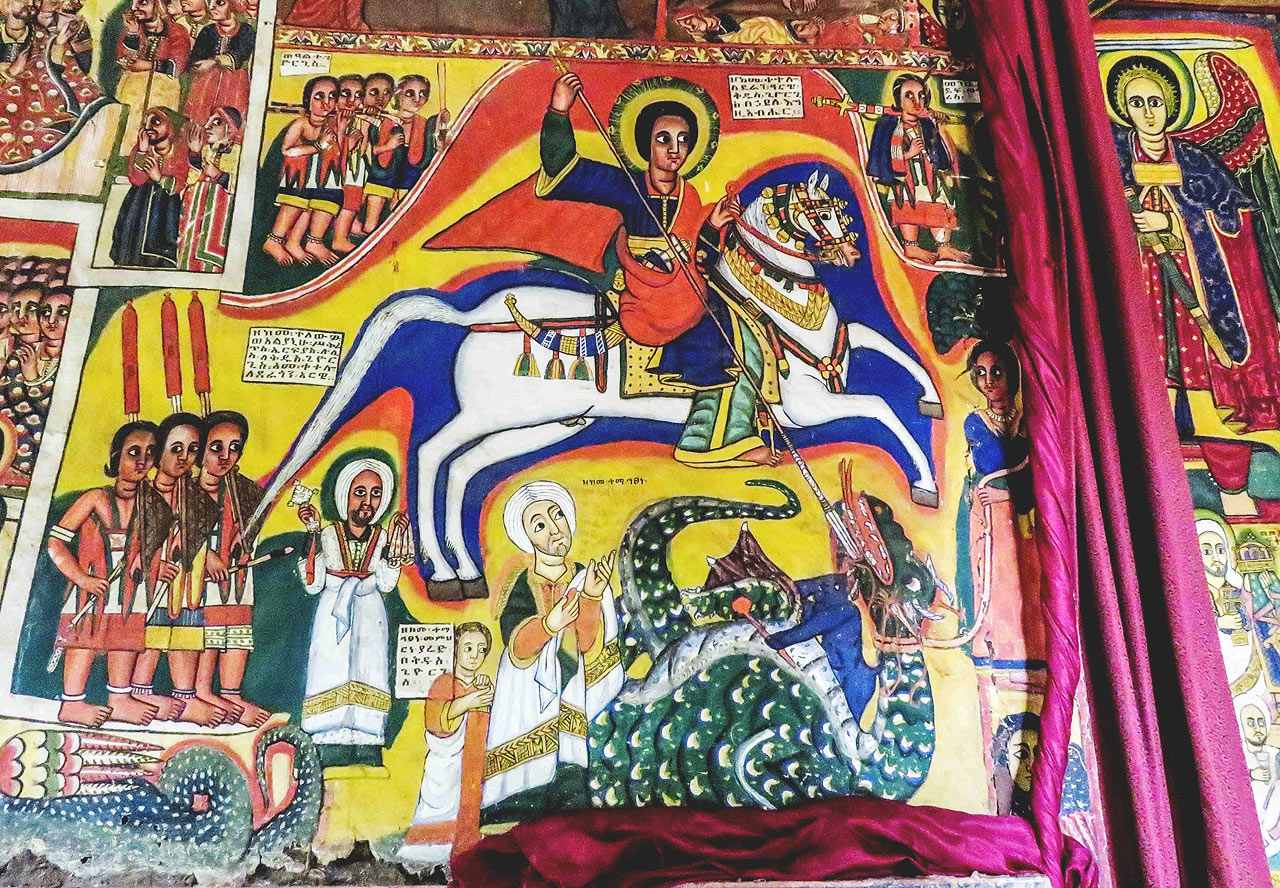
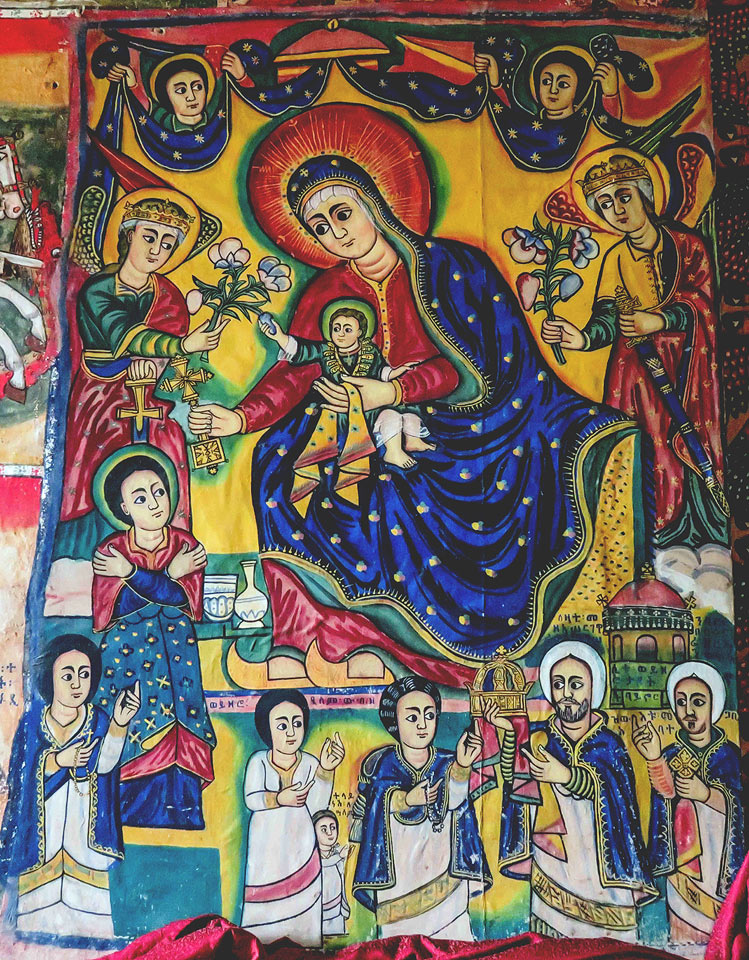 “The church service on Sunday lasts from 4 to 5 hours and the people are expected to stand the whole time. On the return cruise we went up a tributary of the Blue Nile which is guarded by a hippo – that’s right, a hippopotamus!
“The church service on Sunday lasts from 4 to 5 hours and the people are expected to stand the whole time. On the return cruise we went up a tributary of the Blue Nile which is guarded by a hippo – that’s right, a hippopotamus!
“When we were then trying to dock the boat, a storm blew up and we were blown onto the rocks. Two helpful men pulled us back to the dock.
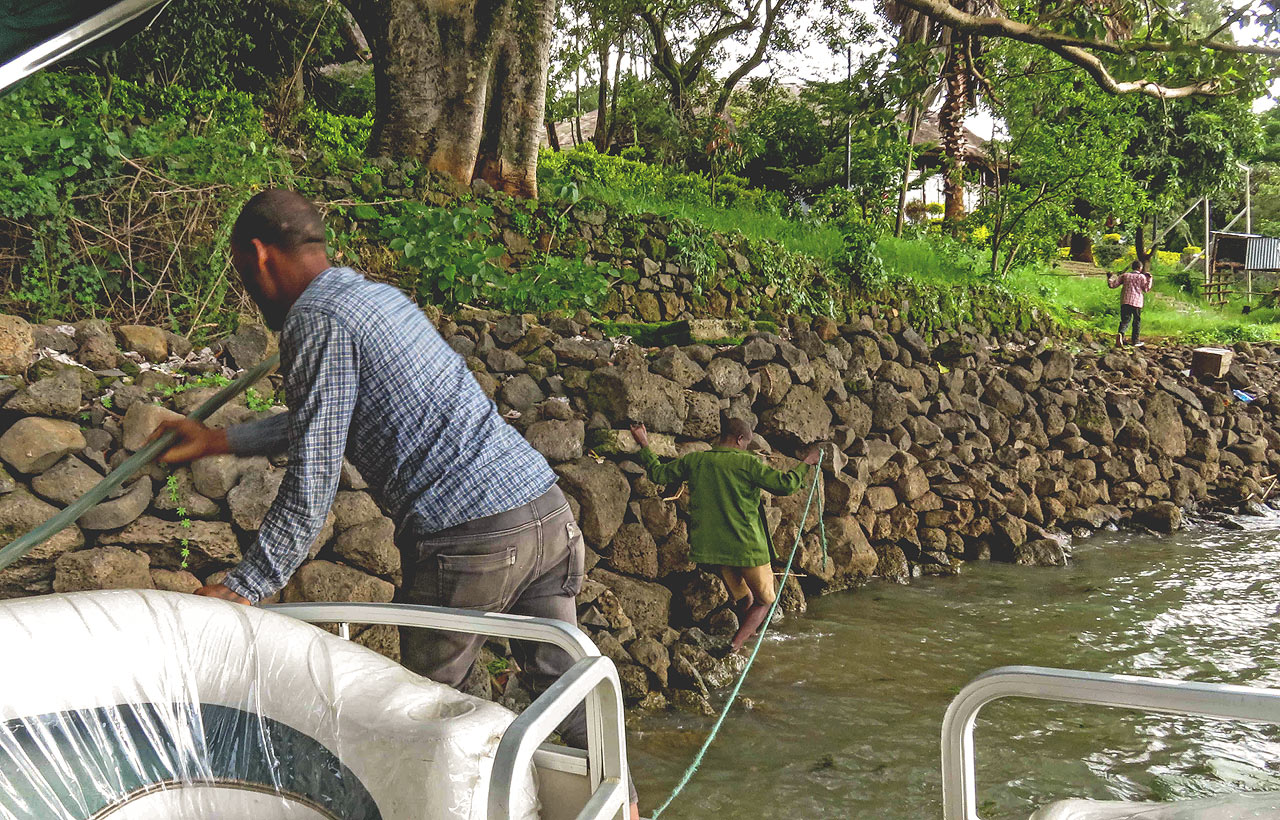
“On Sunday we drove to the Blue Nile Falls. The Blue Nile contributes around 80% of the water for the great Nile River while the White Nile, which starts in Lake Victoria, Uganda, contributes the remaining 20%.
“The Falls themselves were a bit of an anti-climax – the main reason being that most of the water has been re-directed into a hydroelectric plant. The other reason is that the wet season isn’t fully under way yet. So, the Falls are brown, not blue, because of the rich alluvial soil being washed along in the river. The walk to the Falls was challenging.
“The track was very muddy and also dotted with large rocks. The lovely guide held my hand the whole way otherwise I would have fallen often. There were also many herds of goats along the track – I thought I was a goat-herder at one time!
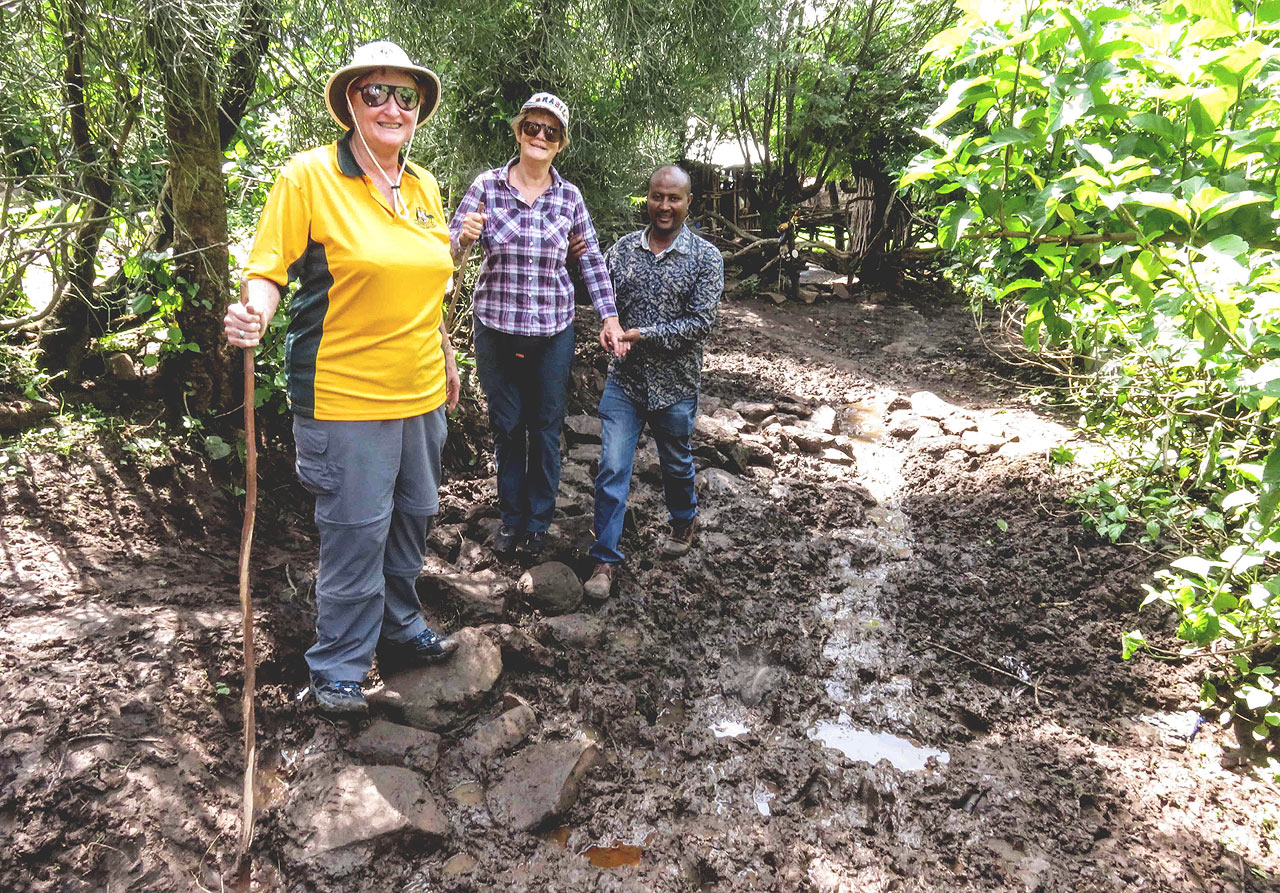
Our lovely informative guide, Kibrrom, is teaching us to appreciate coffee. It is their culture that the person drinking the coffee has to see it being roasted, ground and cooked on hot coals or else they will not drink it. The coffee has a beautiful taste – Australian coffee will never be the same again!
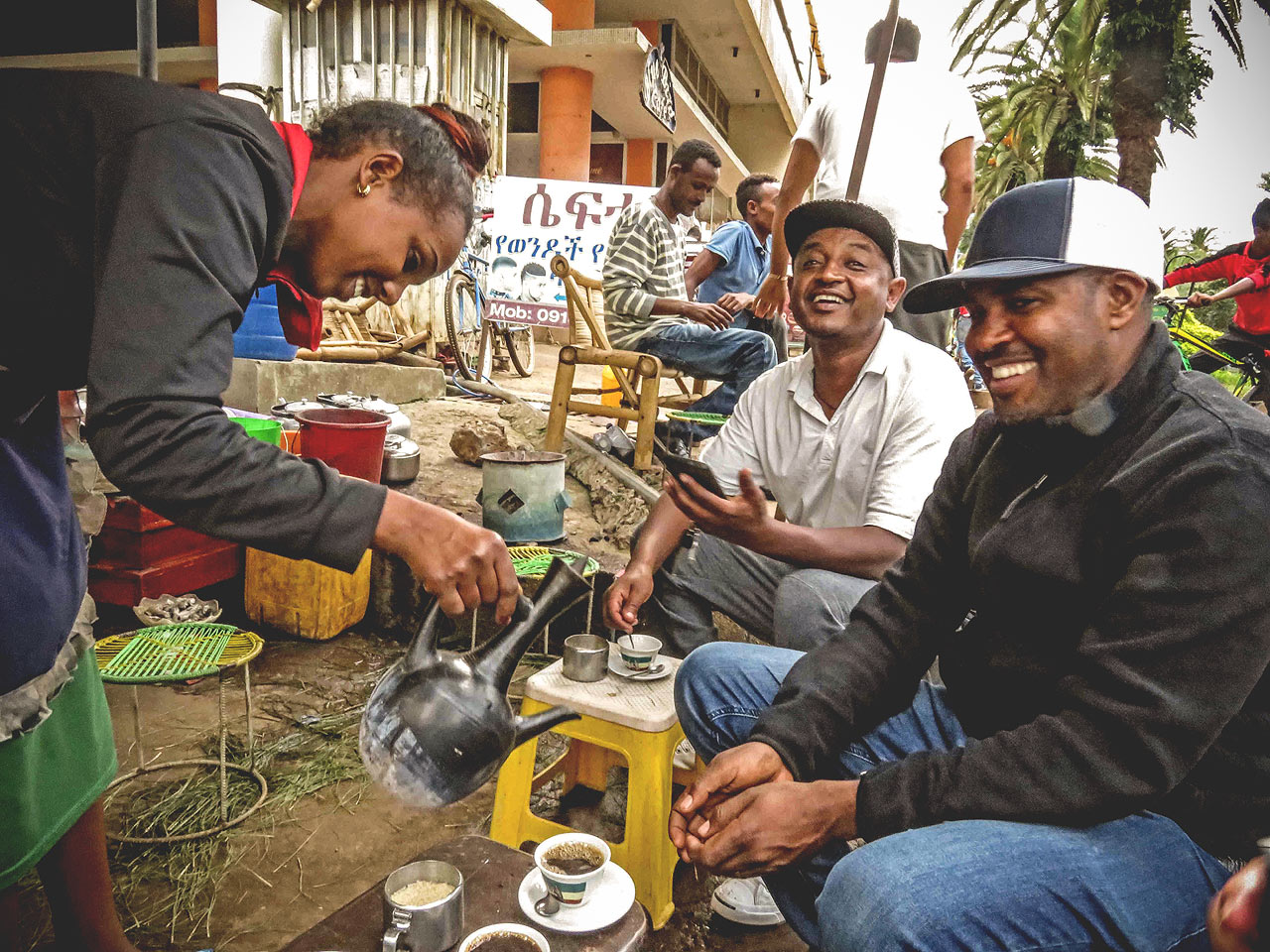
Dr Anne is hoping her African travel blog can inspire people to act over the plight of wild animals there and around the world, by encouraging donations to the Melbourne-based organisation For The Love of Wildlife (FLOW). Her good friend Donalea Patman OAM, who founded FLOW, is setting out for Geneva in August to attend the Convention on the International Trade in Endangered Species (CITES) in her mission to turn the extinction crisis around. CITES is the UN Convention that regulates the international trade in endangered wild flora and fauna.
Donalea explains why this mission to Geneva is so important, explaining how she will advocate for the CITES system to be modernised. At the moment, she says CITES still uses the original paper-based permit system conceived in 1975, which does not integrate with customs, making permit verification and shipment validation impossible, and allows for loopholes that all lead to the rampant illegal wildlife trade recently estimated by the World Customs Organisation to be worth up to US$258 billion.
“In Geneva, the opportunity exists for 4 to 5 countries to raise our proposals to modernise CITES for discussion,” explains Donalea. “Two CITES signatories have indicated they would be prepared to do so, provided other countries agree to join in. There is also a preference that a significant wildlife range country (a country where poaching is a significant threat) takes the lead role in this group of 4 to 5.Other signatory countries say they are open to such a discussion.
Donalea says the solution is to modernise CITES with a global roll-out of an electronic permit system to all 183 parties, as well as consider switching to the ‘reverse listing system originally proposed by Australia in 1981 which means the default position would be no commercial trade in endangered flora and fauna. The burden of proof would that trade was sustainable would then shift from governments and NGOs to industry.
“In years to come this CITES modernisation project could become a point in history where a significant step forward was achieved to protect the world’s precious flora and fauna, in the same way that we recognise the Paris Agreement, the Rio Declaration, the Kyoto Protocol, Copenhagen Accord and Addis Ababa Principles,” says Donalea.
Dr Anne is fully supportive of FLOW’s mission to Geneva and encourages all wildlife lovers to donate to For The Love Of Wildlife
All donations over $2 are tax deductible and are possible via Paypal, credit card or direct debit.
